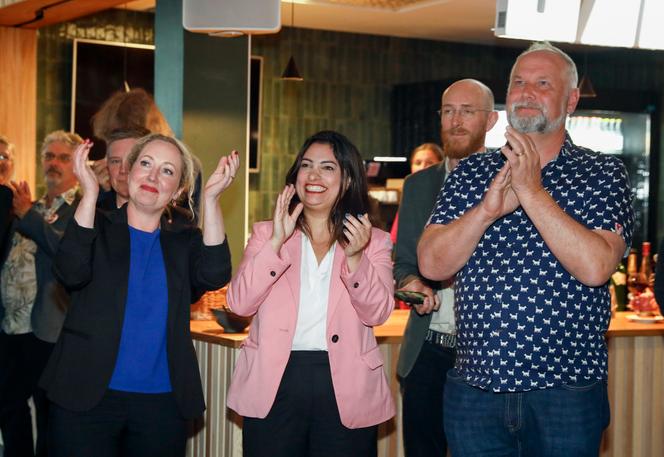European elections: Far-right on the decline in Nordic countries

In recent years, it seemed like there would be no stopping the success of the far right in Northern Europe. In October 2022, the Sweden Democrats (SD) political party, which had come second in the parliamentary elections a month earlier with 20.5% of the vote, signed a coalition agreement with the conservative neoliberal right. Eight months later, in June 2023, the Finn entered government in Helsinki, while in Denmark the People’s Party succeeded in imposing its migration policy, which was adopted even by the Social Democrats.
On the evening of Sunday, June 9, this momentum was interrupted. While elsewhere in Europe, nationalist movements triumphed, they were defeated in the Nordic countries, swept aside by the left, which came out on top in Sweden, Finland and Denmark. This result was hailed by the lead candidate of Sweden’s Left Party, Jonas Sjöstedt, as “a ray of hope” for Europe. Leader of the Social Democrats, Magdalena Andersson, whose party won their election, also expressed his delight, proclaiming that “a left-wing wind is blowing across Sweden”.
The defeat is particularly painful for the right-wing SD, which has been consistently credited with 18% to 20% of voting intentions by polling institutes for months. Jimmie Akesson’s party obtained 15.3% in the European elections in 2019. Since its creation in 1988, the political group with Neo-nazi origins has gained ground at every poll.

With 13.2% of the vote on Sunday, the SDs retained their three MEP seats but only came fourth, behind their sworn enemy, the Green party, which achieved its best-ever score in a European election, with 13.8 % of the vote. This was a strong signal for the government, which has consistently softened the country’s commitments in the fight against climate change and environmental protection. “The Swedes are showing that they want a policy aligned with what science says,” commented Alice Bah Kuhnke, leader of the Greens.
Outbidding
Akesson, for his part, felt that his party would “have to analyze the result and see why [it] didn’t [progress].” However, he has already decided where to lay the blame: “This is the strangest election campaign I’ve ever been involved in,” he declared, looking glum, claiming that “the month [of May had] been very difficult for [his] party.” Charlie Weimers, SD lead candidate, described a “Kalla Fakta effect,” named after TV4’s investigative program, which revealed on May 14 that the party’s communications department was home to a factory of trolls running anonymous accounts on social media.
You have 58.91% of this article left to read. The rest is for subscribers only.
Related
A New Book Argues That What Happens in Europe Doesn’t…
Remaking the World: European Distinctiveness and the Transformation of Politics, Culture, and the Economy by Jerrold Seigel “No issue in world
Poland plans military training for every adult male amid growing…
Poland’s prime minister, Donald Tusk, has said his government is working on a plan to prepare large-scale military training for every adult male in response t
2025 European Athletics Indoor Championships: Ditaji Kambundji secures women’s 60m…
Switzerland’s Ditaji Kambundji walked away from the 2025 European Athletics Indoor Championships in Apeldoorn on 7 March with much more than her first Europea
Takeaways from the EU’s landmark security summit after Trump said…
BRUSSELS (AP) — European Union leaders are trumpeting their endorsement of a plan to free up hundreds of billions of








